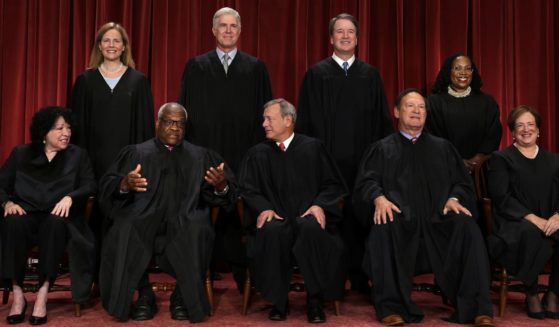
A little-known lawsuit filed by a Utah man could rehash the ongoing controversy surrounding the 2020 presidential election, which he and many other Americans insist was marred by irregularities that undermine its legitimacy.
The lawsuit, Brunson v. Adams, was quietly added to the docket of the U.S. Supreme Court in late October and has since been scheduled for a hearing on Jan. 6 — fittingly, the two-year anniversary of the day that supporters of then-President Donald Trump protested the election results in Washington.
In the complaint he filed himself as a pro se plaintiff, Raland Brunson — who has since been joined by his three brothers — is suing President Joe Biden, Vice President Kamala Harris, former Vice President Mike Pence and the 385 members of Congress who voted to certify the 2020 presidential election.
Brunson “alleged that before accepting the electoral votes on January 6, 2021, defendants intentionally refused to investigate evidence that the November 2020 presidential election was fraudulent,” according to the U.S. Court of Appeals for the 10th Circuit.
The plaintiff “likened defendants’ conduct to an act of war against the United States Constitution that violated their oath to uphold the Constitution and his right to participate in an honest and fair election,” it said.
The lawsuit seeks to remove Biden from the White House and restore Trump to the Oval Office.
While that outcome is unlikely since we’re entering Year 3 of Biden’s failed presidency and are inching closer to the 2024 election, the fact that the high court has docketed the case is raising eyebrows.
In a commentary last week, Tim Canova — a constitutional law scholar and professor at Nova Southeastern University’s Shepard Broad College of Law in Florida — said SCOTUS is considering the lawsuit to avert a constitutional crisis in light of recent revelations that the FBI had colluded with Twitter and Facebook to suppress negative news about Biden.
“The fact that the Brunson case has made it to the Court’s docket suggests profound concerns about a lawless Jan. 6 congressional committee, politicized federal law enforcement and intelligence agencies and major constitutional violations intended to overthrow an elected government by manipulating the outcome of the presidential election,” Canova wrote.
Canova said the erosion of public trust caused by the flagrant politicization of supposedly impartial institutions such as the U.S. intelligence agencies could ignite mass protests if SCOTUS doesn’t step in.
“Supreme Court justices may well see these approaching storm clouds and conclude that the Court’s intervention is necessary to prevent larger civil unrest resulting from constitutional violations that are undermining public trust and confidence in the outcomes of both the 2020 and 2022 elections,” he wrote.
Canova added: “The Brunson lawsuit does not claim the election was stolen, merely that a large majority of Congress, by failing to investigate such serious allegations of election rigging and breaches of national security, violated their oaths to protect and defend the Constitution against all enemies, foreign and domestic — an oath also taken by Supreme Court justices and members of the U.S. military.”
Conservative commentator Erick Erickson said last week he does not believe the Brunson case will remove Biden simply because too much time has passed during which the United States and the countless nations it deals with made decisions relying on the assumption that Biden was president.
The problem with this argument is that it essentially suggests we should sweep Election Day irregularities and serious allegations of voter fraud under the rug because it’s simply too annoying to deal with them.
The Brunson lawsuit — which has received hardly any media coverage — should be heard by the Supreme Court, and the existential issues it raises about U.S. election integrity must be prioritized if this nation wants to live up to its hype as the land of the free.
In the closing remarks of his request for Supreme Court review, Brunson said it was an act of treason for our leaders to not investigate the significant accusations of election fraud before installing Biden as president.
“When the allegations of a rigged election came forward, the Respondents had a duty under law to investigate it or be removed from office,” he wrote.
“An honest and fair election can only be supported by legal votes, this is sacred. It is the basis of our U.S. Republican Form of Government protected by the U.S. Constitution.”
The plaintiff underscored: “The efforts made, as stated in the complaint, that avoided an investigation of how Biden won the election, is an act of treason and an act of levying war against the U.S. Constitution which violated Brunson’s unfettered right to vote in an honest and fair election and as such it wrongfully invalidated his vote.”
